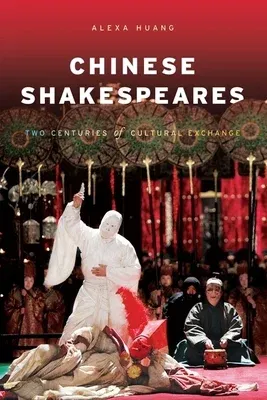Alexa Huang
(Author)Chinese Shakespeares: Two Centuries of Cultural ExchangePaperback, 26 June 2009

Qty
1
Turbo
Ships in 2 - 3 days
In Stock
Free Delivery
Cash on Delivery
15 Days
Free Returns
Secure Checkout

Part of Series
Global Chinese Culture
Print Length
368 pages
Language
English
Publisher
Columbia University Press
Date Published
26 Jun 2009
ISBN-10
0231148496
ISBN-13
9780231148498
Description
Product Details
Author:
Book Format:
Paperback
Country of Origin:
US
Date Published:
26 June 2009
Dimensions:
22.61 x
14.99 x
1.78 cm
ISBN-10:
0231148496
ISBN-13:
9780231148498
Language:
English
Location:
New York
Pages:
368
Publisher:
Series:
Weight:
476.27 gm